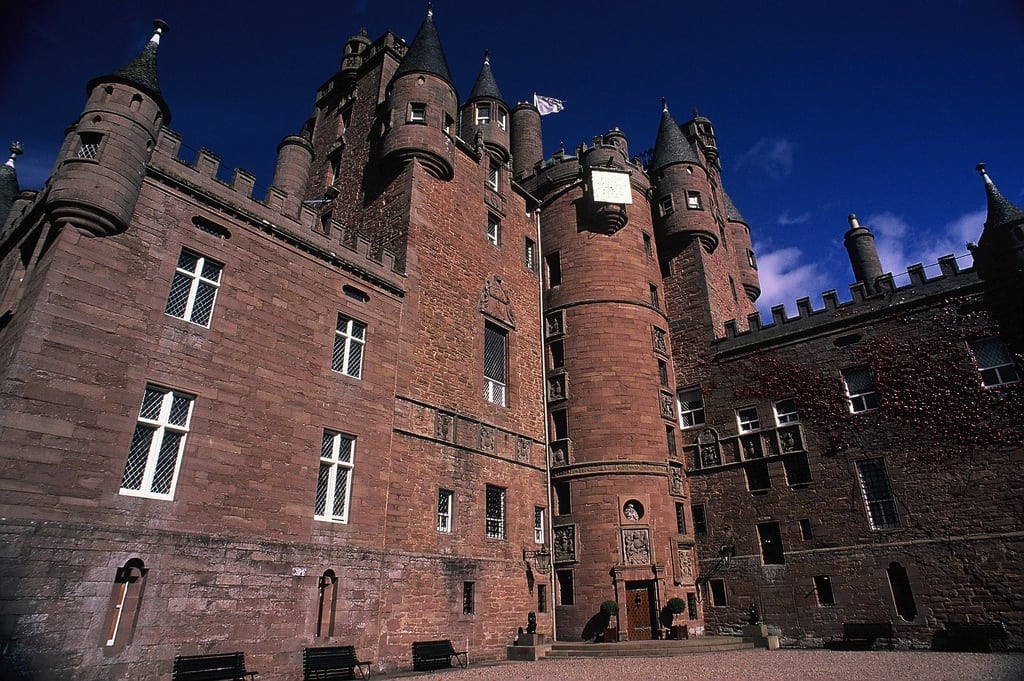Scotland takes on Shakespeare to turn Macbeth into tourist draw

Skift Take
He was the Scottish king immortalised in one of William Shakespeare’s plays as a murderous man driven by a lust for power which led him to guilt, madness and an ignominious death by beheading.
Now a campaign in Scotland aims to rehabilitate the 11th-century ruler’s tarnished image, arguing that Shakespeare fictionalised the Scot’s reign and misrepresented the truth in the eponymous play.
On Friday at Glamis Castle in Angus – an appropriate venue as Macbeth was afforded the title Thane of Glamis by Shakespeare – details of the Macbeth Trail will be unveiled in a bid to attract tourists to Scotland’s north-east while educating the public about the country during the Middle Ages.
The tourist route will highlight places from Shakespeare’s play that were significant to the real Macbeth, including Glamis, Lumphanan – an Aberdeenshire village where Macbeth was killed in battle in 1057 by the future King Malcolm III – and Cairn O’Mount, Aberdeenshire, where Macbeth took his supporters en route to his defeat at Lumphanan.
The idea for the campaign followed the recent discovery of the remains of Richard III under a car park in Leicester. The 15th-century English king was also portrayed as a villain by Shakespeare and the subsequent debate about facts pertaining to his life led to Alex Johnstone MSP tabling a motion in the Scottish parliament in an attempt to raise awareness about Macbeth’s reign.
The motion read: “That the parliament notes the discovery of what is believed to be the remains of the English king, Richard III; considers that the subsequent debate on the merits of his reign were prompted in no small part by his portrayal by Shakespeare; contrasts this debate with the treatment of Macbeth, king of Scotland from 1040 to 1057, by Shakespeare in the play, Macbeth, which was not written until around 550 years after the death of the king at the Battle of Lumphanan; believes that the play is arguably more a reflection on the relationship between Shakespeare and his patron, King James VI, rather than an attempt at historical accuracy; deeply regrets that the perceived successful reign of King Macbeth remains, it believes, misportrayed to many on the basis of his treatment by Shakespeare; and acknowledges calls for greater efforts to be made to increase awareness of the reign of Macbeth and the Scottish history of the period, which it considers could boost visitor numbers to places associated with this iconic monarch, such as Lumphanan in Aberdeenshire and Glamis in Angus.”
Johnstone, who represents the north-east of Scotland region, said that in stark contrast to the character in Shakespeare’s play, the real King Macbeth enjoyed a long reign in comparison to other monarchs of the time and his throne was even secure enough to allow him to make a pilgrimage to Rome, an arduous trip that later monarchs might not have risked in fear of being deposed of in their absence.
He added: “The reign of Macbeth, set in the context of the time, was successful and outward looking. To many, however, it is characterised by paranoia and murder because of Shakespeare’s portrayal. The proposal is to form an authoritative trail of important places connected with Macbeth for visitors and enthusiasts alike.
“The idea is not to totally discard the character created by Shakespeare, but to allow people to draw a distinction between the fictional and factual character. The trail, whilst using traditional information sources including leaflets and signage, would also embrace new technology such as QR barcodes which, when scanned using a readily available app on any new generation android or iPhone, will present the user with more information.”
A spokesman for VisitScotland said: “The potential for trails, tours, events and information in areas associated with this Scottish King, famously immortalised by Shakespeare, is considerable, and visitors from across the world would I’m sure be interested to find out more about the real Macbeth – the man behind the character.
“History, heritage and ancestry are key themes of Scottish tourism with the latter contributing over £100m to the Scottish economy. Anything that can help contribute further is to this is great news for Scotland.”
![]()




